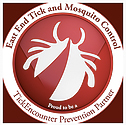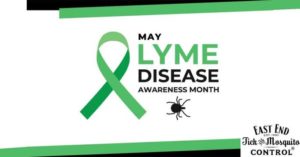
Summer is weeks away, and as Long Island residents prepare for the busy season and warmer days ahead, it is also time to prepare for tick season. Specifically, it is time to focus on the fact that May is Lyme Disease Awareness Month. Scientists are predicting a hectic year with an increase in ticks. Doctors believe that COVID-19 could lead to more people being infected with tick-borne illnesses because the urge to go outside being stronger than ever.

 The weather is getting warmer, the sun is shining brighter, and after being inside our homes for so long, our desire to go outside is stronger than ever. Although, keep in mind that we are not the only living things that are becoming more active because ticks are also making a grand reappearance this spring. However, there is no need to worry! The experts at East End Tick Control® are here to inform you of an unorthodox way to reduce the number of ticks on your property; by allowing an animal that is a natural predator to ticks to consume any ticks they encounter outside your home.
The weather is getting warmer, the sun is shining brighter, and after being inside our homes for so long, our desire to go outside is stronger than ever. Although, keep in mind that we are not the only living things that are becoming more active because ticks are also making a grand reappearance this spring. However, there is no need to worry! The experts at East End Tick Control® are here to inform you of an unorthodox way to reduce the number of ticks on your property; by allowing an animal that is a natural predator to ticks to consume any ticks they encounter outside your home. Spring is here, and so are pesky, disease-carrying ticks. We should be able to freely enjoy the warm weather without worrying about becoming an all-you-can-eat buffet for these bothersome insects who can transmit life-threatening diseases. Luckily, the East End Tick Control® experts have extensive knowledge of how to keep ticks away from you and your property. Here are three ways to protect yourself from ticks this spring.
Spring is here, and so are pesky, disease-carrying ticks. We should be able to freely enjoy the warm weather without worrying about becoming an all-you-can-eat buffet for these bothersome insects who can transmit life-threatening diseases. Luckily, the East End Tick Control® experts have extensive knowledge of how to keep ticks away from you and your property. Here are three ways to protect yourself from ticks this spring.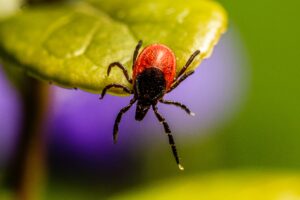 Spring has arrived and after being stuck inside all winter, we cannot wait to get back outside! However, it is important to remember that ticks are active, and the time to start preparing for Lyme Awareness Month is now.
Spring has arrived and after being stuck inside all winter, we cannot wait to get back outside! However, it is important to remember that ticks are active, and the time to start preparing for Lyme Awareness Month is now. 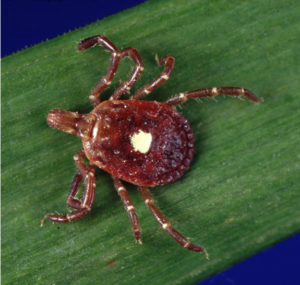 That itch you’re feeling? It’s not chiggers! Every year thousands of people report itchy red bites from what they think is an encounter with a chigger. In fact, evidence shows there are no chiggers on long island. It’s the larvae of Lone Star Ticks that are causing those itchy red welts on your skin.
That itch you’re feeling? It’s not chiggers! Every year thousands of people report itchy red bites from what they think is an encounter with a chigger. In fact, evidence shows there are no chiggers on long island. It’s the larvae of Lone Star Ticks that are causing those itchy red welts on your skin. 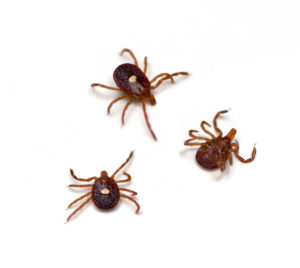 Most people believe that colder temperatures kill ticks but we’re here to let you know that myth is FALSE. During the fall season (October and November), ticks are active and looking to feed as they know winter is on the horizon and they’ll need to survive until spring.
Most people believe that colder temperatures kill ticks but we’re here to let you know that myth is FALSE. During the fall season (October and November), ticks are active and looking to feed as they know winter is on the horizon and they’ll need to survive until spring.  The summer of COVID-19 has brought guests from all over the world to our gorgeous home known as the Hamptons. While it’s nice to have somewhere to escape to, it’s important to remember ticks have also made their way onto your lawn and they aren’t going anywhere anytime soon. Ticks are being found just about everywhere, including the dune grasses at our local beaches, the grass at the park, local wooded trails, the grass along the side of the road, and of course your own backyard.
The summer of COVID-19 has brought guests from all over the world to our gorgeous home known as the Hamptons. While it’s nice to have somewhere to escape to, it’s important to remember ticks have also made their way onto your lawn and they aren’t going anywhere anytime soon. Ticks are being found just about everywhere, including the dune grasses at our local beaches, the grass at the park, local wooded trails, the grass along the side of the road, and of course your own backyard.
 While it’s always important to protect yourself from ticks, we can’t forget about our furry friends! Ticks are VERY small, therefore they can be easy to miss and are sometimes latched on for days before we come across them. Both cats and dogs can be infected with Lyme disease and cats are especially vulnerable to tularemia, haemo-bartonellosis, and babesiosis. Dogs, similar to people, can contract Rocky Mountain spotted fever, hepatozoonosis, which is contracted by eating an infected tick.
While it’s always important to protect yourself from ticks, we can’t forget about our furry friends! Ticks are VERY small, therefore they can be easy to miss and are sometimes latched on for days before we come across them. Both cats and dogs can be infected with Lyme disease and cats are especially vulnerable to tularemia, haemo-bartonellosis, and babesiosis. Dogs, similar to people, can contract Rocky Mountain spotted fever, hepatozoonosis, which is contracted by eating an infected tick.